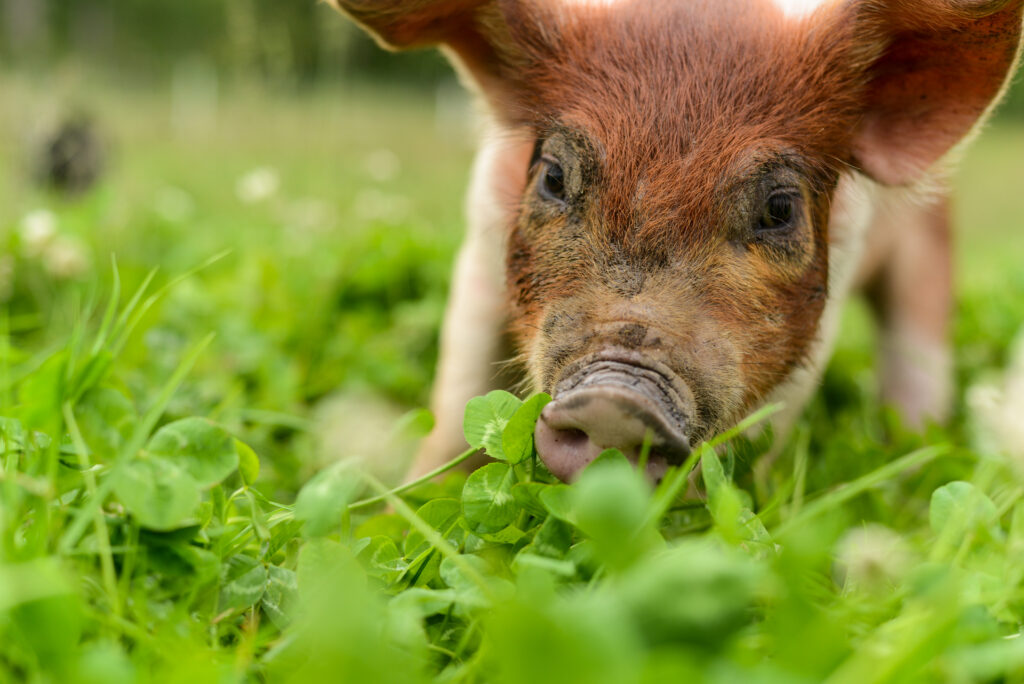
This is one of the biggest misconceptions out there about organic foods.
The reality is that while most synthetic sprays are prohibited from use on a certified organic operation, it doesn’t mean that certain pesticides and fertilizers are. Let’s get into it.
Let’s touch on this first though: Organic does not mean no spray. It just means that the sprays used aren’t synthetically derived and pass the USDA’s requirements for organic application. Yup, you read that right. Organic does NOT mean no spray.
Firstly, it’s important to understand what pesticides really are. The definition of a pesticide is a substance that is used to kill pests. Pests, whether in the form of bacteria, insects, or mammals, can be a huge problem when it comes to growing crops (a lot of you can probably relate if you have a garden of your own!) but especially on a larger scale. I think a lot of people tend to see the word pesticide and think of heavy, mass produced, and toxic industrial chemicals. But what you might not know is that there are also plant-based pesticides and what are generally considered to be “organic pesticides” that are permitted to be used by certified organic operations. Some of these sprays contain components such as aluminum, copper sulfate, neem oil, etc and while most of these are more mineral based, these are still chemicals that you don’t necessarily want to be ingesting in large quantities. It’s also worth noting that organic pesticides tend to break down much quicker than their more traditional counterparts which means that they are often reapplied more frequently and at shorter intervals.
For example, neem oil is one of the most commonly used pesticide sprays on organic crops that is highly toxic to honeybees. There is a give and take in all agriculture and sadly, even organic has its heartbreaking downsides.
Herbicides are a compound used to inhibit the growth of plants. Glyphosate is the most notorious of these compounds and yes, it is banned in organic agriculture. However, that doesn’t mean other interventions aren’t used. While I am much more comfortable with the methods in organic here as a consumer, as a farmer, I see how difficult it is to manage this issue organically.
I’m not here to say that sticking to only organic is inherently worse than just buying conventional foods; in fact, with both organic and conventional foods, it’s likely that with both categories there is likely going to be some residue of whatever pesticide was used. But I do think it’s important to distinguish and separate the notion of organic from inherent feelings of protection and safety. If sprays are a true concern, it’s best to seek out “no spray” foods, which are admittedly quite difficult to find.
As for animal based organic, I struggle deeply with this. Never, in conventional or organic, are antibiotics in your meat or milk. Ever. It is highly regulated and all milk is tested. However, in organic, you also cannot treat an animal at anytime in their life with antibiotics. So, lets say a cow gets mastitis (infection of the udder) or an injury that is resistant to intervention, instead of treating the cow with antibiotics and dumping the milk until all antibiotics have passed from their system (which is required anyway), the dairy cows are sold and used for ground beef. No other dairyman wants to take on the risk of a sick cow when they already have such small margins so they aren’t being sold to another farm. It is more common that this is the outcome than the alternative of being treated and sold to a conventional farm.
Now, before we go off the deep end and say organic isn’t better in dairy, I do have to mention this little caveat: the quality of living standards in order to receive organic certification are another aspect of organic rearing of livestock that many prefer and in the best interest of the animal.
While I wish everyone had access to small scale raw milk, I will say that I deeply value the American dairy farmer and it is a rare instance where the standards of care aren’t highly attuned to the best interest of the cattle, organic or not.
Someone I really admire here locally once said to me, “large scale organic is just expensive conventional.” And truthfully, I had a hard time disagreeing. It is a highly nuanced subject. Finding no spray agriculture is hard and impossible on a large scale. You wont find it in a grocer. For us, we can grow our own but for those who can’t, seeking out small scale farmers at your local markets and asking question is the best way to dive deep and really find out what’s used on the food you’re consuming.
Food is such a personal thing and unfortunately there is a lot of misinformation out there when it comes to labeling. But, ultimately this is the biggest reason why we choose not to be certified organic and do things our own way.
This is very valuable and appreciate honesty for a change. Thank you so much for your great information. I think it took the fear from constant search for organic and high prices to pay. Will be very careful what we purchase.